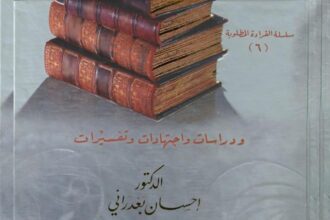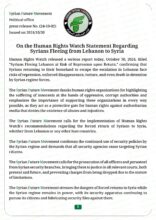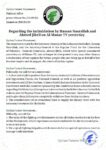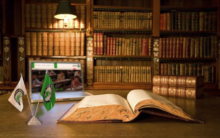Assad’s Intelligence (Between Illusion and Weakness)
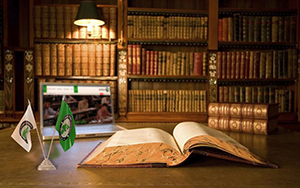
A few days ago, “Mohammad Harsho”, a journalist loyal to the Syrian regime, wrote in the “Hashtag Syria” website, known for its direct connection to the Presidential Palace’s security apparatus, an article titled: “Assad begins the new year with exceptional decisions, security and party in the service of civil Syria.” The article mentions that work is underway, away from the media, on the two most important files in the contemporary history of the Syrian state, (the restructuring of the security apparatus and the Ba’ath Party), and the site confirms that we will notice the translation of “this work in the coming days and it will simply be a turning point towards civil Syria.”
Until then, we have no choice but to wait for what “Harsho” promises us in terms of exceptional reforms!
How could they not be exceptional when the people rose up in a revolution to free themselves from the security grip that suffocated them for decades? Neither the Assad regime’s rule over Syria, nor the Syrian revolution against it to this day, were anything but his reforms that, had they been implemented from the first days, could have spared Syria the ravages of this conflict and its complications! So, does Assad (who sees himself as victorious) indeed give reforms that he did not give to his people when he counted them by the millions, and was facing scenarios, the worst like Gaddafi, and the best like Zine El Abidine Ben Ali!!
Security for the citizen, not against him:
Under this title, “Harsho” mentioned that directives were issued to merge some security branches by what he called “Palace Committees,” so that the security apparatus would be for the security of the citizen, not against him, through:
1- Eliminating bureaucracy, after merging many branches into one division or administration, and canceling other branches in a parallel step.
2- Eliminating many sections whose task was to follow government work and stay away from administrative and civil performance.
3- Tracking pervasive corruption files through the Central Inspection Authority or the Ministry of Interior.
Through these three points in the reform file of the Syrian intelligence, according to “Harsho’s” article, Syria will transition towards “civility”.
Of course, “Harsho,” who combined security and party reform in the title, postponed the discussion of party reform to another article!!
We wonder here, can Assad’s Syria really reform its intelligence apparatus?
Firstly, where are these decisions that have been issued so we can read and monitor their progress? Are there really decrees that limit, regulate, or restructure the intelligence apparatus?
Secondly, according to “Harsho,” the merger was carried out by (Palace Committees), regardless of who they are, whether civilians, military, retired intelligence officers, or others!! So, is it a service restricted to the palace’s residents and those in their orbit?
Thirdly, the real question is, can the Syrian regime today change its current structure that preserved its rule and practically served it in its continuity?
Fourthly, if the merger (if it happened) occurred, is it because it is satisfied with those in its embrace (or it in theirs) from external or internal influential and active forces within Assad’s Syria?
Fifthly, does this merger by the security branches remove the Syrian regime from its security and police nature? Or is it a case of changing skin, or dispensing with the services of officers who have indulged in Syrian blood, necessitating their removal and turning off the light on their dark history?
Sixthly, have we heard about merging intelligence branches (military, political, air force, general intelligence, national security) with each other?
Or have they remained like five fingers for the Syrian regime, all in the grip of the presidency or what “Harsho” calls the Palace Committees?
Can we question the value of merging or even canceling branches while the original remains?
No doubt, the structure of the Syrian regime today is in a state of disintegration, clearly evident from the increased external control over the state’s joints on one hand, and the internal conflict in the inner circle of the palace’s residents on the other, built on the tug-of-war between the Russians and the Iranians, each according to whom they support! A previous article by the Research and Studies Department of the Syrian Future Current’s Scientific Office wrote about Asma Al-Akhras’s sidelining of the Alawite political authority in Syria!
In this state of disintegration, can the Assad regime fatally wound itself? Or cut off its fingers that were and still are the biggest reason for cementing its authority?
What are the required reforms?
If the Syrian regime truly wants to renew and reform its current structure, and move from a security to a civil complexion, it needs several steps, the most important of which are:
1- Combining the five branches into one national security apparatus, known to all by its explicit name, not by numbers and names detached from its size, shape, and natural structure.
2- Prosecuting officers involved in Syrian blood through domestic courts, publicly before official and unofficial media.
3- Allowing the judiciary and the civil police to take their true role, making the judiciary the commander in the relationship between the citizen and the authority, not the security dungeons and intelligence corridors.
4- Defining felonies and cases that are referred to the security apparatus in a way that does not lead to forced disappearance and arbitrary arrest.
5- Removing all Syrians abroad from the lists of branches and divisions and referring them to civil justice.
6- Prohibiting the presidential palace from interfering in the work of the new security apparatus, through a clear and explicit law.
7- Publishing the names of those who died in Syrian intelligence dungeons before and after the Syrian revolution, closing all security prisons after the unconditional release of prisoners of conscience and the like, and referring those who should be to civil justice.
8- Cancelling all security exceptions unconditionally.
Eight points that can be added to others as well, as the security situation in Syria is so entangled that it is directly responsible for the current state of Syria. If the Syrian regime truly intends to carry out real reform, starting from the seriousness of the situation, then it needs to implement these practical steps and others, not just export illusions about superficial changes, the cost of the ink they were written in being more valuable than them.
Jomaa Mohamad Laheep
Political Office
Research and Studies Department
Articles
Syrian Future Movement (SFM)

